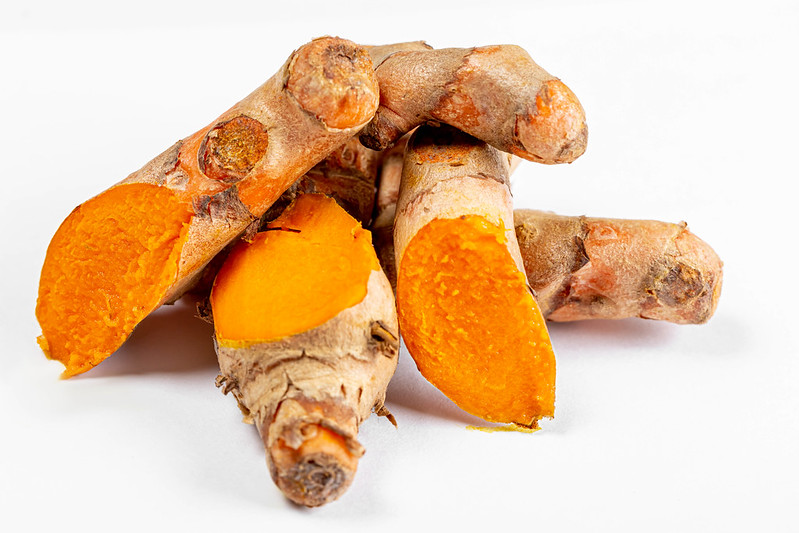Table of Contents
- Turmeric is mostly used for what autoimmune diseases?
- Can Turmeric be used for treating a UTI?
- Can Turmeric be used for treating hives?
- How to use Turmeric for fungal infection?
- Is Turmeric good for treating an allergy?
- Can Turmeric be used for treating Sjogren’s syndrome?
- Can Turmeric be used for treating shingles?
- Want to know more?
- Sources
Turmeric is mostly used for what autoimmune diseases?
Tumeric is mostly used for the following autoimmune diseases :
- Hashimoto’s thyroiditis
- Rheumatoid arthritis
- Graves disease
- Psoriatic arthritis
- Crohn’s disease
- Multiple sclerosis
Autoimmune diseases are mostly inflammatory, affect multiple people, and are a significant cause of morbidity and mortality worldwide. Curcumin in turmeric is a natural anti-inflammatory, and curcumin shows effects equivalent to ibuprofen and diclofenac, so it might just be one of the best possible home remedies to treat autoimmune diseases.
Turmeric may support immunomodulation, and this helps to suppress the autoimmune condition.
In the video below, Dr. Horwitz explains how the spices turmeric and ginger help protect against an autoimmune dysfunction:
This is our recommended Turmeric supplement (Amazon’s Choice):

Can Turmeric be used for treating a UTI?
Turmeric can be used for treating a urinary tract infection (UTI) as it inhibits the production of NF kappa-B, which is of of the main reasons for inflammation and infections in the urinary tract.
Moreover, studies have shown the active ingredient Curcumin in turmeric to be anti-bacterial, so turmeric can also help prevent infection.
The antioxidant and anti-inflammatory properties of turmeric will help lessen the inflammation caused by the UTI, and turmeric’s anti-oxidant properties will inhibit the infection’s growth.
Can Turmeric be used for treating hives?
Tumeric can be used for treating hives because of its natural anti-inflammatory nature. It can be applied directly as a paste on the rashes caused by hives. The paste will soothe the irritation, lower inflammation, and prevent further infections.
The most effective way to use turmeric to treat hives is to mix two teaspoons of freshly ground turmeric powder with 250 ml of lukewarm water and then drink that mix twice daily.
How to use Turmeric for fungal infection?
To use turmeric for fungal infections, form a paste using a small amount of lukewarm water and ground turmeric, and then apply it directly to the affected area.
Studies have shown the active ingredient Curcumin in turmeric to have antifungal properties. Turmeric can also prevent any further infections.
Is Turmeric good for treating an allergy?
Turmeric is good for treating an allergy because of its anti-inflammatory properties. Allergies can cause throat congestion and nasal passages, cough, and colds. Tumeric has shown to be effective in managing these symptoms.
Moreover, studies have also shown turmeric boosts immunity lowering the chances of allergy altogether.
Can Turmeric be used for treating Sjogren’s syndrome?
Tumeric is a possible treatment for Sjogren’s syndrome as the active ingredient, Curcumin, helps reduce cellular incursion in the salivary glands, which causes harm in Sjogren’s syndrome.
A study has also shown Cucurmin to be a potential treatment for this autoimmune disease.
Can Turmeric be used for treating shingles?
Turmeric should not be used to treat shingles. Applying turmeric on blisters or open wounds may cause severe irritation and may also, in some cases, cause further complications such as secondary infections.
Want to know more?
Click the links below to access the individual topic pages:
Sources
This article makes use of information from the U.S. National Library of Medicine under the terms of the Creative Commons Attribution 4.0 International License.
- Moghadamtousi, S. Z., Kadir, H. A., Hassandarvish, P., Tajik, H., Abubakar, S., & Zandi, K. (2014). A review on antibacterial, antiviral, and antifungal activity of curcumin. BioMed research international, 2014, 186864
- Moghadamtousi SZ, Kadir HA, Hassandarvish P, Tajik H, Abubakar S, Zandi K. A review on antibacterial, antiviral, and antifungal activity of curcumin. Biomed Res Int. 2014;2014:186864. doi: 10.1155/2014/186864. Epub 2014 Apr 29. PMID: 24877064; PMCID: PMC4022204.
- Kurien BT, D’Souza A, Scofield RH. Heat-solubilized curry spice curcumin inhibits antibody-antigen interaction in in vitro studies: a possible therapy to alleviate autoimmune disorders. Mol Nutr Food Res. 2010 Aug;54(8):1202-9. doi: 10.1002/mnfr.200900106. PMID: 20146265; PMCID: PMC3545698.
- Wu S, Xiao D. Effect of curcumin on nasal symptoms and airflow in patients with perennial allergic rhinitis. Ann Allergy Asthma Immunol. 2016 Dec;117(6):697-702.e1. doi: 10.1016/j.anai.2016.09.427. Epub 2016 Oct 24. PMID: 27789120.


